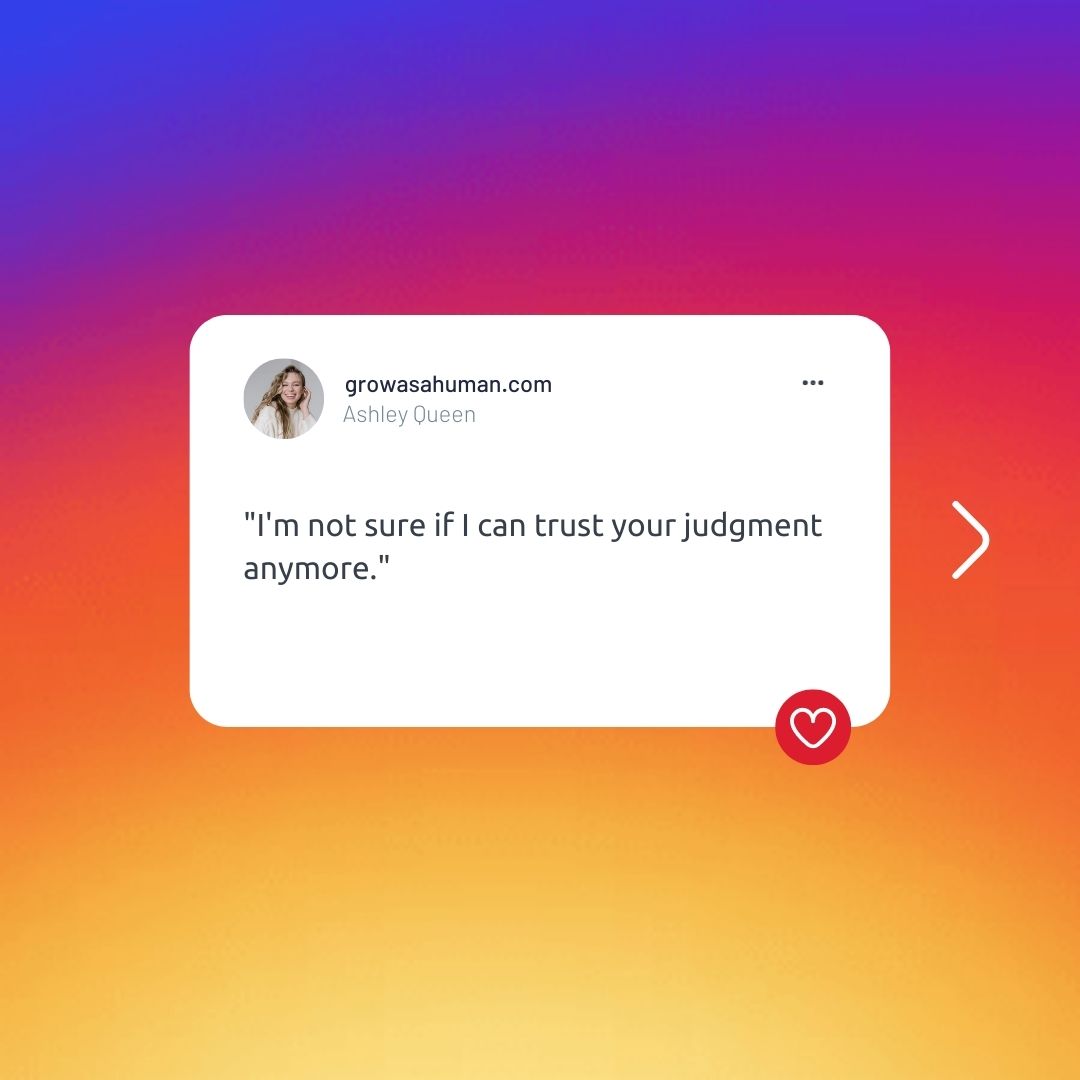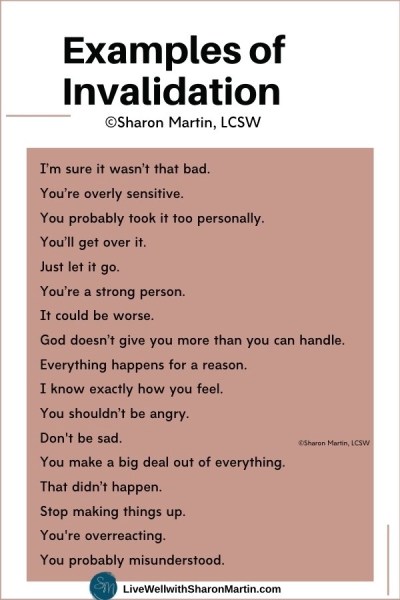
In any relationship, open and honest communication is vital, even when it comes to addressing hurtful comments. It can be challenging to express our feelings without causing conflict or making our partners defensive. However, finding a way to express to your partner that certain comments they make are hurtful is crucial for maintaining a healthy and thriving relationship. By approaching the conversation with kindness, understanding, and a focus on finding common ground, you can create a safe space for both of you to grow and strengthen your bond.

This image is property of netstorage-tuko.akamaized.net.
Understanding the importance of communication
Effective communication is the foundation of any healthy and thriving relationship. It plays a vital role in building trust, fostering intimacy, and resolving conflicts. When communication breaks down or becomes hurtful, it can negatively impact the dynamics between partners. Therefore, it is crucial to recognize the need for open and honest communication in order to maintain a strong and supportive relationship.
Recognizing the need for open and honest communication
In any relationship, it is normal to experience moments of disagreement or conflict. However, it is how we handle these situations that can either strengthen or jeopardize the relationship. Recognizing the need for open and honest communication means acknowledging that no issue can be resolved without first having a conversation about it. By cultivating an environment of trust and understanding, you create a safe space for both you and your partner to express your thoughts and feelings without fear of judgment or reprisal.
Understanding the impact of hurtful comments on the relationship
Hurtful comments can have a lasting impact on both the individual receiving them and the overall relationship. When someone we care about makes hurtful remarks, it can erode our self-esteem and create feelings of insecurity, resentment, or anger. These emotions can build up over time, leading to a breakdown in communication and emotional distance between partners. It is important to understand the gravity of hurtful comments and their potential to damage the foundation of trust and love within a relationship.
Reflecting on your own emotions
Before approaching your partner about the hurtful comments they make, it is essential to take the time to reflect on your own emotions. This self-reflection allows you to gain a deeper understanding of your feelings and the underlying causes behind them. Are you feeling hurt because the comment touched on a sensitive topic? Is there a history of similar comments that have made you question your self-worth? By identifying these emotions and understanding their roots, you can approach the conversation with clearer intentions and a better understanding of yourself.
Identifying your feelings and their underlying causes
Take the time to sit with your emotions and identify the specific feelings that arise when your partner makes hurtful comments. Are you feeling sad, angry, or anxious? Once you have identified the primary emotions, try to delve deeper and understand the underlying causes. For example, if your partner often comments on your appearance, it may be triggering underlying insecurities about your body image. By recognizing these feelings and their sources, you can better communicate your needs to your partner.
Exploring the impact of these comments on your self-esteem
Hurtful comments can have a significant impact on your self-esteem. They can chip away at your confidence and make you doubt your worthiness or value in the relationship. It is crucial to explore the effects of these comments on your self-esteem and recognize the negative patterns they may be reinforcing. Understanding how these comments affect you will allow you to communicate their impact to your partner more effectively and help them understand why their words are hurtful.

This image is property of growasahuman.com.
Choosing an appropriate time and place
When it comes to discussing sensitive topics, such as hurtful comments, choosing the right time and place is vital. Selecting a calm and private environment free from distractions will enable both you and your partner to focus on the conversation without external disruptions. Additionally, consider the emotional state of both yourself and your partner. It is best to address the issue when both of you are calm and in a receptive state of mind. Avoid bringing up the topic during heated moments or times of stress, as this may escalate the situation rather than fostering open and productive communication.
Using ‘I’ statements to express your feelings
When addressing your partner about hurtful comments, it is essential to frame your comments in a way that avoids blame or accusation. Using “I” statements allows you to take ownership of your feelings and express them in a non-confrontational manner. For example, instead of saying, “You always make hurtful comments,” you could say, “I feel hurt when certain comments are made.” This approach conveys your emotions without placing blame on your partner, inviting them to understand the impact of their words on your well-being.
Framing your comments to avoid blame or accusation
To avoid creating a defensive atmosphere during the conversation, it is crucial to frame your comments in a way that avoids blame or accusation. Instead of focusing on specific instances where your partner made hurtful comments, express how those comments made you feel. By emphasizing your emotions rather than pointing fingers, you can encourage a more empathetic and understanding response from your partner.

This image is property of netstorage-tuko.akamaized.net.
Expressing specific examples of comments that have hurt you
While framing your comments to avoid blame, it is still essential to express specific examples of the hurtful comments that have affected you. Sharing concrete instances can help your partner understand the gravity and repetitiveness of their words. Be prepared to provide specific examples of comments that have hurt you, along with an explanation of why they were hurtful. This approach will promote a clearer understanding of the impact their words have had on your emotional well-being.
Being clear and assertive in your communication
When discussing hurtful comments and expressing your emotions, it is crucial to be clear and assertive in your communication. Use assertive language to express your emotions effectively, making sure your partner understands your perspective. Be honest, direct, and avoid minimizing or sugarcoating your feelings. Being assertive allows you to set healthy boundaries and communicate your needs without compromising your self-respect.
Using assertive language to express your emotions
Assertive language is key when expressing your emotions to your partner. Clearly and confidently communicate how their comments have made you feel. For example, saying, “I feel hurt and unappreciated when you make comments about my appearance,” conveys your emotions without blaming or attacking your partner. By using assertive language, you are more likely to be heard and understood, fostering a more productive conversation.

This image is property of i0.wp.com.
Setting boundaries to prevent future hurtful comments
An essential aspect of effective communication is setting boundaries. Clearly communicate to your partner the specific behaviors or comments that are hurtful and establish the boundaries you expect them to respect. Articulating these boundaries can help prevent future hurtful comments and create a healthier and more respectful dynamic between both partners. Setting boundaries ensures that both you and your partner feel safe and secure in expressing yourselves without causing harm or distress.
Encouraging empathy and understanding
In addition to expressing your own emotions, it is essential to articulate the impact of hurtful comments on your emotional well-being. By explaining how these comments have affected you, you give your partner the opportunity to empathize and understand the consequences of their words. Encouraging empathy fosters a deeper connection and helps your partner recognize their responsibility in promoting a supportive and caring environment for both of you.
Explaining the impact of hurtful comments on your emotional well-being
When discussing the impact of hurtful comments, it is important to explain to your partner how these comments have affected your emotional well-being. Share with them the thoughts and emotions you experience as a result of their comments. By providing insight into the detrimental effects of their words on your self-esteem and overall mental health, you can help them grasp the gravity of their actions and potentially change their behavior.

This image is property of netstorage-tuko.akamaized.net.
Encouraging active listening and perspective-taking
To promote effective communication, it is crucial to encourage active listening and perspective-taking from both partners. Active listening involves truly listening and understanding your partner’s words, thoughts, and feelings. Encourage your partner to actively engage in the conversation, asking questions and seeking clarification when needed. Additionally, encourage perspective-taking by inviting your partner to imagine how they would feel if the roles were reversed. This exercise can help them gain a deeper understanding of the impact their comments have on you.
Listening to your partner’s perspective
Effective communication is a two-way street. Just as you want your partner to listen to your perspective, it is equally important to provide space for them to express their thoughts and feelings. Remember that open and honest communication involves active listening and respect for your partner’s viewpoint. While their comments may have hurt you, it is important to approach the conversation with empathy and a willingness to truly understand their intentions or underlying issues.
Providing space for your partner to express their thoughts and feelings
During the conversation, provide your partner with the opportunity to express their thoughts and feelings without interruption or judgment. Allow them to share their perspective and explain their intentions behind the hurtful comments. Providing this space demonstrates your commitment to fostering open communication and helps create a safe and non-threatening environment for both of you.
Avoiding defensiveness and actively listening
When your partner expresses their thoughts and feelings, it is crucial to avoid defensiveness and actively listen. Defensiveness can hinder productive communication and escalate the situation. Instead, try to put yourself in their shoes and genuinely hear what they have to say. By actively listening and seeking to understand, you can lay the foundation for finding common ground and working towards a resolution.
Seeking compromise and finding common ground
Once both you and your partner have expressed your thoughts and feelings, it is important to seek compromise and find common ground. Engage in a constructive dialogue to explore potential solutions or changes that can be made to foster a healthier dynamic. This may involve setting mutual boundaries, establishing guidelines for respectful communication, or finding alternative ways to address sensitive topics. By working together towards a compromise, you can create a stronger, more resilient relationship.
Engaging in a constructive dialogue to find solutions
Finding solutions requires engaging in a constructive dialogue where both partners actively participate. Brainstorm and explore different strategies or approaches that can help address the issue of hurtful comments. Be open to compromise and willing to consider alternative perspectives. Remember, the goal is not to prove one’s point or win an argument, but rather to find solutions that promote understanding, empathy, and emotional well-being for both partners.
Working together to establish healthy communication norms
The journey towards healthy communication does not end with one conversation. It requires ongoing effort and a commitment from both partners. Together, work towards establishing healthy communication norms that promote respect, empathy, and understanding. This may involve regular check-ins, practicing active listening, and continuing to express emotions using ‘I’ statements. By cultivating these communication habits, you can create a strong foundation for a fulfilling and harmonious relationship.
Considering couples therapy
If the issue of hurtful comments persists or if the underlying issues seem too complex to address on your own, it may be beneficial to consider couples therapy. Couples therapy can provide a supportive and neutral space for both of you to explore underlying issues, improve communication skills, and work towards resolving conflicts. A trained therapist can guide you through the process, providing valuable insights and tools to help you navigate the challenges within your relationship.
Recognizing the benefits of professional guidance
Couples therapy offers numerous benefits, even for relationships that are relatively healthy. It provides a platform for objective guidance and support from a trained professional who specializes in relationship dynamics. A therapist can offer unbiased perspectives, help you recognize patterns of communication, and provide techniques to navigate conflicts more effectively. Investing in couples therapy demonstrates a commitment to the well-being of your relationship and a willingness to work on it together.
Exploring therapy options to address underlying issues
When considering couples therapy, it is important to explore the various therapy options available to address underlying issues. Different therapeutic approaches may be more suitable depending on your specific needs and circumstances. Some options include cognitive-behavioral therapy (CBT), emotionally focused therapy (EFT), or psychodynamic therapy. Consult with a mental health professional or seek referrals to find a therapist who specializes in couples therapy and can guide you towards the most appropriate therapeutic approach.
Taking care of yourself
Amidst the process of addressing hurtful comments and improving communication, it is essential to prioritize self-care and self-compassion. Remember that your emotional well-being matters, and taking care of yourself is essential for the success of any relationship. Practice self-care activities that promote relaxation, stress reduction, and self-reflection. Seek support from friends, family, or a counselor to provide guidance and a space to express your own emotions throughout this journey.
Practicing self-care and self-compassion
Self-care and self-compassion are vital components of maintaining emotional well-being. Engage in activities that bring you joy, reduce stress, and promote self-reflection. This might involve meditation, exercise, journaling, or exploring creative outlets. Additionally, be kind to yourself and practice self-compassion. Recognize that addressing hurtful comments requires vulnerability and courage. Treat yourself with the same love and understanding that you desire from your partner.
Seeking support from friends, family, or a counselor
Throughout this process, it can be helpful to seek support from friends, family, or a counselor. Talking to trusted individuals who can provide a listening ear, valuable insights, and emotional support can be instrumental in navigating the challenges of addressing hurtful comments in a relationship. If needed, consider individual counseling to explore your own emotions, build resilience, and develop effective coping strategies.
Remember, effective communication requires effort, patience, and a commitment from both partners. By understanding the importance of communication, reflecting on your own emotions, and fostering empathy and understanding, you can navigate the issue of hurtful comments and build a stronger, more fulfilling relationship. Prioritize your emotional well-being and seek the support you need to create a loving and supportive environment for yourself and your partner.






